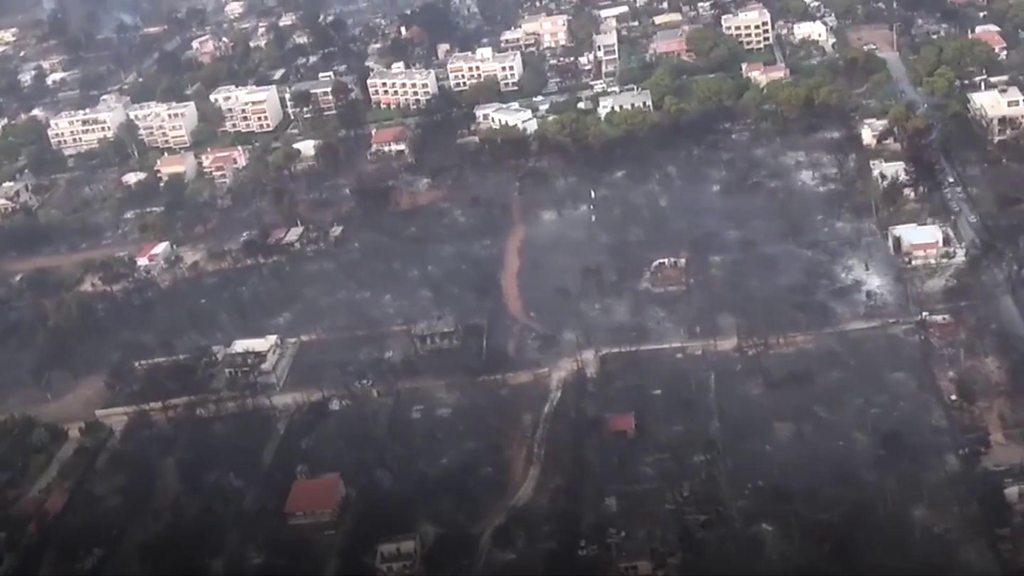Greece wildfires: British man in hospital with burns
- Published
Wildfires cause devastation in Greece
A British man is being treated for burns in hospital after being caught up in the wildfires in Greece.
At least 77 people have died as a result of the blaze, which began near the capital, Athens, on Monday.
A Foreign Office spokesman said its staff in Greece were "assisting a British man and his family following his hospitalisation".
The government has advised UK citizens needing assistance in Greece to call the British Embassy in Athens., external
Meanwhile, Greek Prime Minister Alexis Tsipras has declared three days of mourning as the search for survivors continues.
The British man being treated in hospital has not been named.
Ronan Grant, 19, from Manchester, was unharmed by the fire but was in Athens with two friends when it began.
"We looked up and we saw the sky was grey and red, almost as if there was a border between being stuck in [the fire] and reality," he told the BBC.
"All the locals were coming out, we thought it was a natural happening or something."
He added that "nobody had any idea what was going on" until Tuesday.
Susan Margaret Stephos is being treated in hospital
British expat Susan Margaret Stephos, 71, escaped from the fire in Mati and is now recovering in hospital from burns and smoke inhalation.
She said she felt "very grateful" to have survived.
"When I was in the house and the fire was going over I thought 'I'm not going to make it, this is the end'. But prayers were answered and I managed," she said.
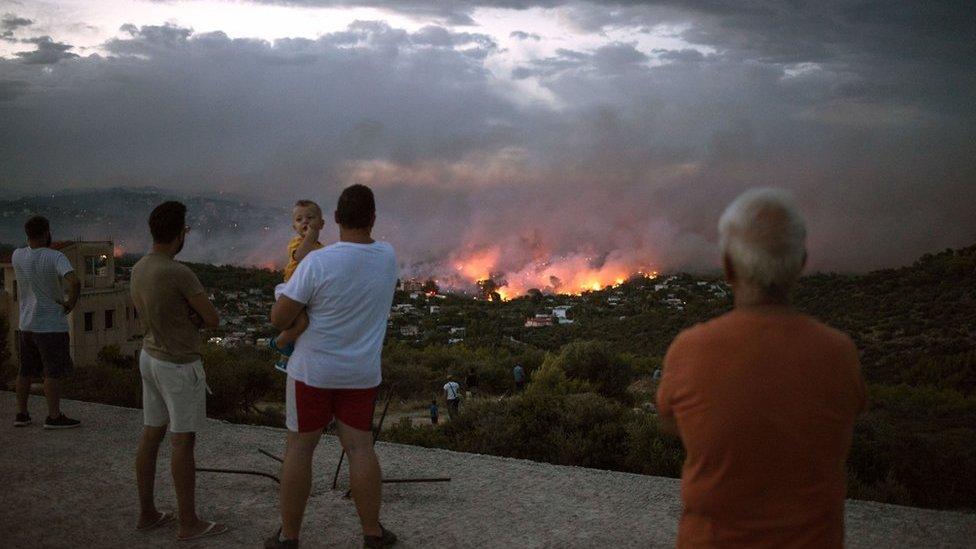
Greece's prime minister has declared a state of emergency in Attica
On Monday night, hundreds of firefighters battled the flames, which were fanned by winds of up to 100km/h (60mph).
Coastal patrol boats and private vessels picked up hundreds of those who managed to reach harbours or beaches.
Rescuers are now searching houses, cars and the coastline for survivors and victims of the fires, amid fears the death toll will rise.
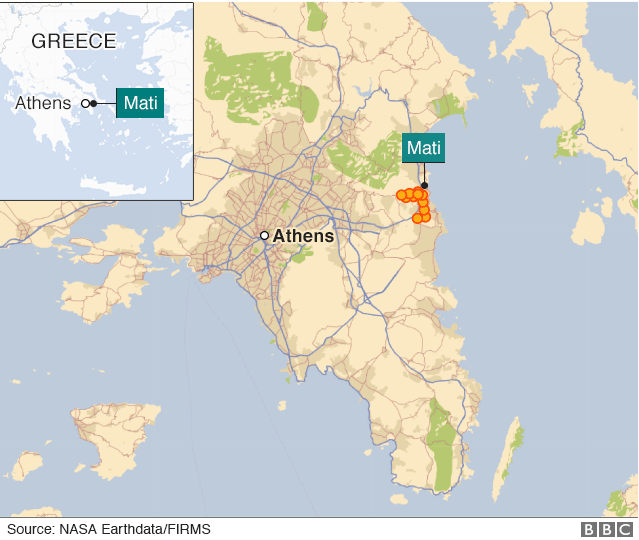
There is no formal count of the missing. The fire brigade has received dozens of calls and has been unable to verify the exact number.
Relatives of those reported missing have posted photographs, external of more than 30 people online in the hope of tracing their whereabouts.
The seaside resort of Mati, in Attica, is popular with local tourists, especially pensioners and children attending holiday camps.
Despite the disaster, life in central Athens is continuing largely as normal, Mr Ronan said, but described the mood in the city as "surreal".
"We've been hearing sirens and stuff but people just seem to get on with their day-to-day lives," he said. "We feel a bit detached from it."
Katerina Pantelidis: "I jumped from the flames"
What caused the fires?
Fires are a recurring problem during the hot, dry summer months in Attica.
Officials have suggested the current blazes may have been started by arsonists looking to loot abandoned homes.
"Fifteen fires had started simultaneously on three different fronts in Athens," said government spokesman Dimitris Tzanakopoulos.
Greece, he added, had requested drones from the US to "detect any suspicious activity".
Greece's last major fire disaster was in 2007, when dozens of people were killed in the southern Peloponnese peninsula.
- Published25 July 2018
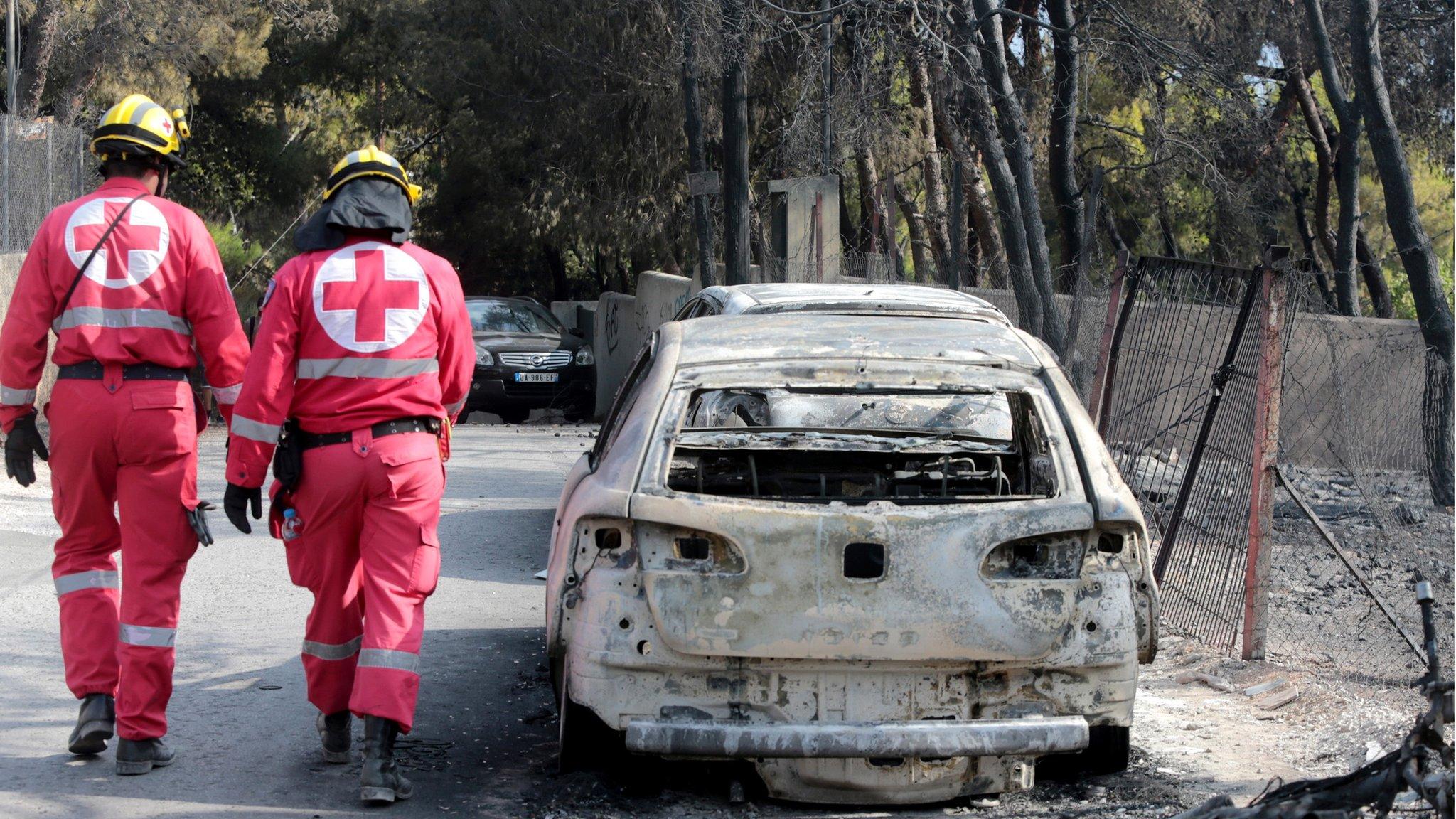
- Published24 July 2018
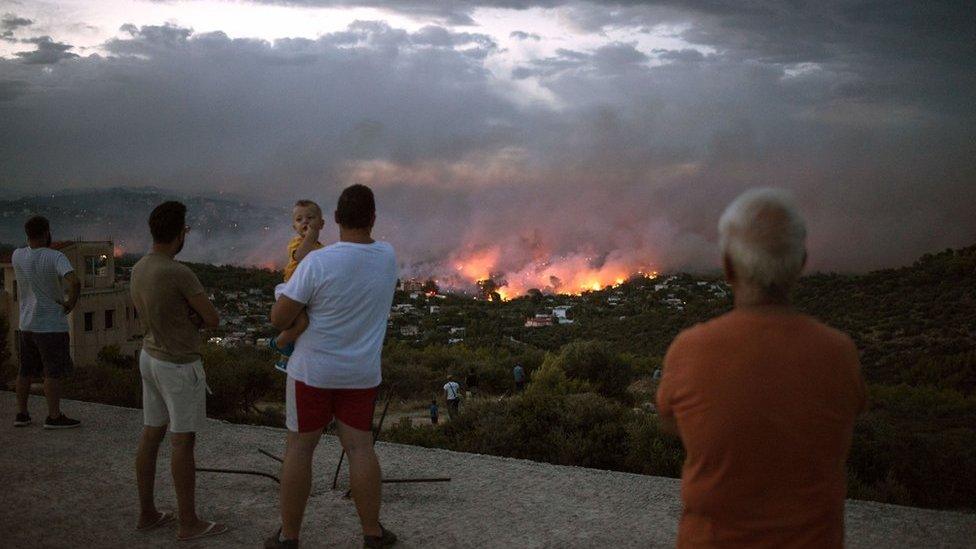
- Published25 July 2018
